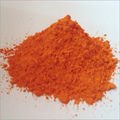
|

Curcumin, also known as Turmeric, is an extract taken from the root of a plant in the Ginger family.
Curcumin (Curcuma longa) is the source of the spice Turmeric, and is used in curries and other spicy dishes from India, Asia, and the Middle East.
Curcumin is what gives the curry its characteristic bright yellow color and strong taste. If curry is too spicy for your tummy, then you can still obtain the benefits of Curcumin by taking it as a nutritional supplement in convenient capsule form. Or, if you like the heat, break the capsule open and sprinkle it on your food.
Like many herbal remedies, people first used Curcumin as a food and later discovered that it also had impressive medicinal qualities. Over the centuries, this spice has been used as a pain relieving, anti-inflammatory agent to relieve pain and inflammation in the skin and muscles. It has served as a treatment for jaundice, menstrual difficulties, hematuria, hemorrhage, colic, and flatulence. In modern times, research has focused on Curcumin's antioxidant, anti-inflammatory, anticarcinogenic, and antimicrobial properties, and on its use in cardiovascular disease, gastrointestinal disorders, and as a treatment for the liver.
In scientific studies, Curcumin has shown promise for:
Curcumin is beneficial in lowering LDL and raising HDL or good cholesterol while reducing the lipid peroxidation.
Researchers in India found treatment with Curcumin prevented the kidney injury and restored kidney function in rats with artificially induced kidney disease.
| Type: Turmeric | Part: Root | Color: Yellow |
| Place of Origin: Uttar Pradesh India |